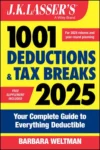Homeowners Could Deduct Mortgage Interest Lender Received on Short Sale
A short sale occurs when a homeowner in financial distress sells their property for less than the amount due on the mortgage. In one case, homeowners filed for bankruptcy and when their petition was discharged, they kept their home, but their mortgage loan was changed from “recourse” to “nonrecourse.” This meant that the lender (CitiMortgage) could not enforce the mortgage debt personally against the homeowners. Rather than foreclose, the lender agreed to a short sale, the proceeds of which were used to pay off accumulated interest and the loan principal. The homeowners received Form 1098 indicating that the lender received $114,688 in interest payments (the accumulated interest), which they deducted. The IRS disallowed the deduction and the district court agreed with the IRS. Now, an appellate court reversed the lower court, allowing the deduction (Lisa Milkovich, CA-9, 3/2/22).
IRS position: The homeowners had realized income from cancellation of debt of $222,978 at the short sale, but were not required to recognize that income because it was non-recourse debt. Because they had unrecognized income from forgiveness of debt in excess of the accrued interest, they had no loss of income from that interest. Therefore, the interest deduction was properly disallowed because the Tax Code precludes deductions that are allocable to tax-exempt income. That limitation on deductions applied here because the cancellation-of-debt income that occurred at the short sale was exempt from income taxes due to being non-recourse.
Appellate court decision: The homeowners could deduct the interest because: (1), where (as here) a short sale involves debt, the transaction does not give rise to cancellation-of-debt income that could be characterized as tax-exempt income and (2) the bankruptcy discharge, which converted the mortgage from recourse to nonrecourse a year before the short sale, had no effect on the otherwise applicable tax treatment of the later short sale. A taxpayer win!
Accountable reimbursement plan
An employer reimbursement or allowance arrangement that requires you to adequately substantiate business expenses to your employer, and to return any excess reimbursement.



